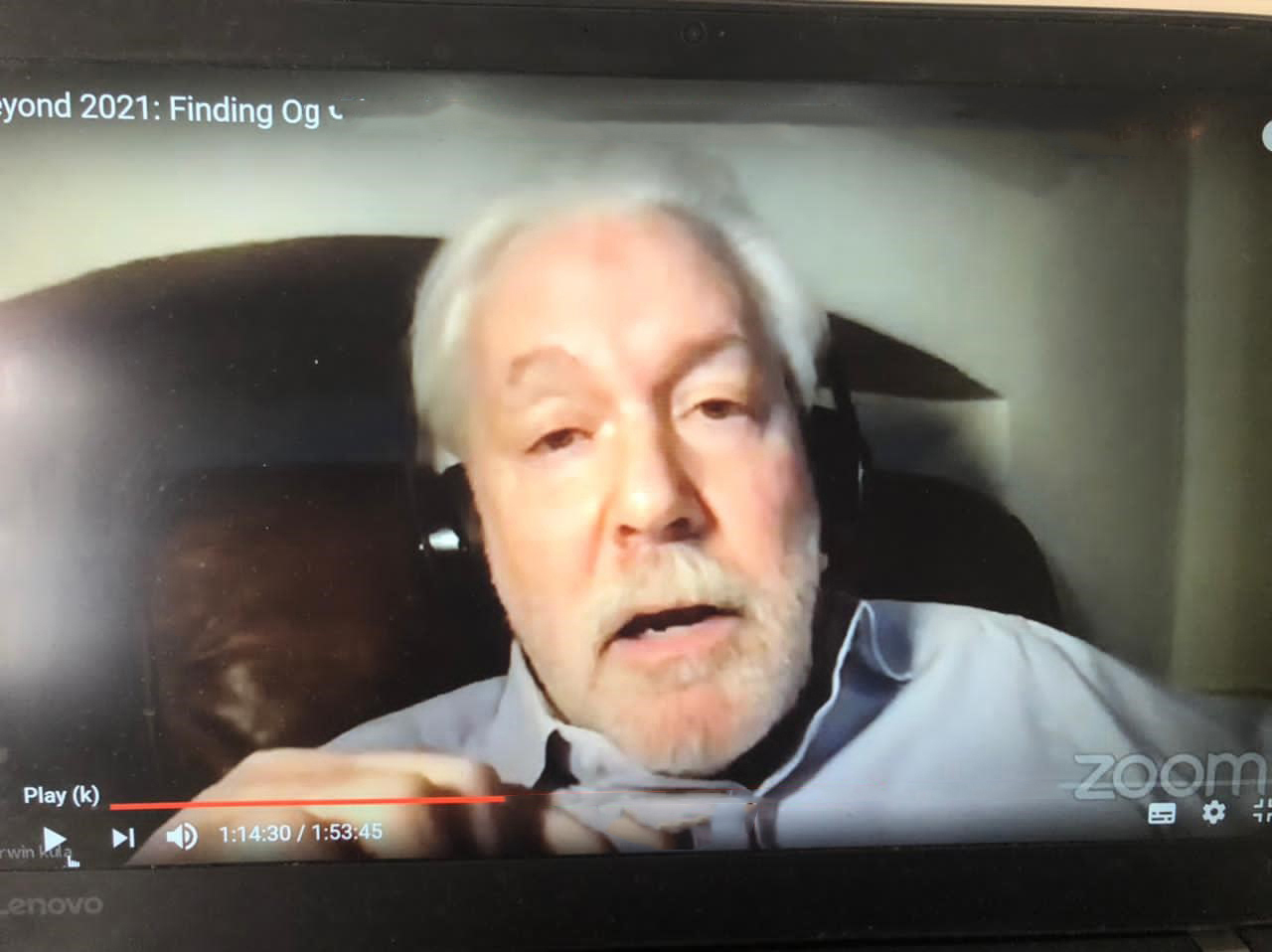click to dowload our latest edition
CLICK HERE TO SUBSCRIBE TO OUR NEWSLETTER


Published
3 years agoon
By
Steven Gruzd“Don’t be scared of the virtual. When our ancestors tried to recreate the exodus every Pesach, they struggled with how to make the virtual real,” said Rabbi Irwin Kula, the president of the United States-based National Jewish Center for Learning and Leadership, in considering COVID-19’s impact on the Jewish world.
“What makes us human beings is the ability to see beyond the overt, the surface,” he said during an online Limmud South Africa event on 10 March that focused on finding our place in a vaccinated world.
Adina Roth, the moderator and co-chair of Limmud South Africa, asked Kula and two other panellists what they foresaw for the Jewish community going forward after a year that had upended conventional communal life.
Kula took a postmodernist approach. “My sense is that everything is going to be happening,” he said, “Consolidation and de-consolidation, more virtual and less virtual, more physical presence and less physical presence … The key word is ‘emergent’, and by definition, we cannot predict it. We haven’t turned off communal life, in fact, many have had more Jewish connections under COVID-19 than in the past decade because of access.”
Rabbi Shoshana Boyd Gelfand leads the Pears Foundation’s international development grants, interfaith projects, and leadership development programmes from London.
“I compare coming out of lockdown to Noah emerging from the Ark,” she said. “Noah’s first act was one of gratitude – he builds an altar. The second is to get drunk, to numb the pain, loss, and grief. We have been traumatised as a community for the past year, living with deep uncertainty and loss. We need to honour both these emotions.
“Virtual gathering is an amazing tool and is creating mini-communities,” Boyd Gelfand said, “but I miss the conversations with my son on the walk to shul.”
Daniel Taub, a British-born Israeli diplomat, international lawyer, and writer, said the pandemic had showed how strengths can be weaknesses. “Take the Haredi [ultra-religious] community. They have such devotion to community, study, and respect for leaders, but there is tremendous crisis there and opposition to change.” The Haredim have been disproportionately affected by COVID-19.
Said Boyd Gelfand, “Judaism is part of our connective tissue. Part of Jewish life and creating community is how we are habituated to daily, weekly, and annual customs and rituals. It helps to keep the muscles of community strong. COVID-19 has disrupted our habits. The danger is that we can’t go back to the old ways, and we don’t replace them with new muscles that are equally robust. We have the opportunity to be intentional about the kind of muscles we want to build. Toned down Bnei-mitzvah have shown us it’s not about the napkin colours or the magician. It’s about what really matters in a coming-of-age ceremony. We have had to find new ways to reach out in shivah.”
She spoke about her son’s uncertainty whether he could attend an Israel summer programme due to COVID-19. “If he doesn’t go, this disrupts the whole ecosystem. It has an impact on his budding relationship with Israel. We want to have that scaffolded at every stage of the life cycle. While much can be done online, there are some things he will miss out on. You can’t replicate the experience of being on the bus, maybe snogging a girl at the back!” She said that technology could be the gift that helped to sustain a love of Israel.
“Technology is good for the doing, but not for the being,” Taub said, “We haven’t figured it all out … we are missing the kiddush at shul and fighting over fish-balls!”
Kula emphasised the pluralism that online interaction unleashes. “A future challenge will be managing many more voices than we’ve ever had to manage before. Umbrella bodies and legacy institutions will have to retool.” He believes technology can unlock so much in Judaism. “There’s an explosion of voices of the excluded, repressed, and marginalised. There is a fluidity and porousness of boundaries between groups, tribes, religions, and peoples.”
Taub warns, however, that lockdown’s psychological issues will play out over a long time once we open up again. “In Israel, the thought that the pandemic is a great leveller and treats all the same – a message of universality and social cohesion – is sadly not always the way it has played out. It has strained fragile relations between the Haredim and the rest of society.”
Taub emphasised Limmud’s role as an enabler. It has constantly renewed itself “through the wisdom of crowds”. Like every institution, it must evolve and remain relevant.
Boyd Gelfand ended off by reminding the audience that Limmud meant “learning”, and created micro communities as part of its magic. “Learning is a dynamic process, we are all struggling, we are all learning. Lean into the discomfort. And historically, Jews learn together, whether in chevrutah (pairs that study Talmud together), or in a minyan.”
